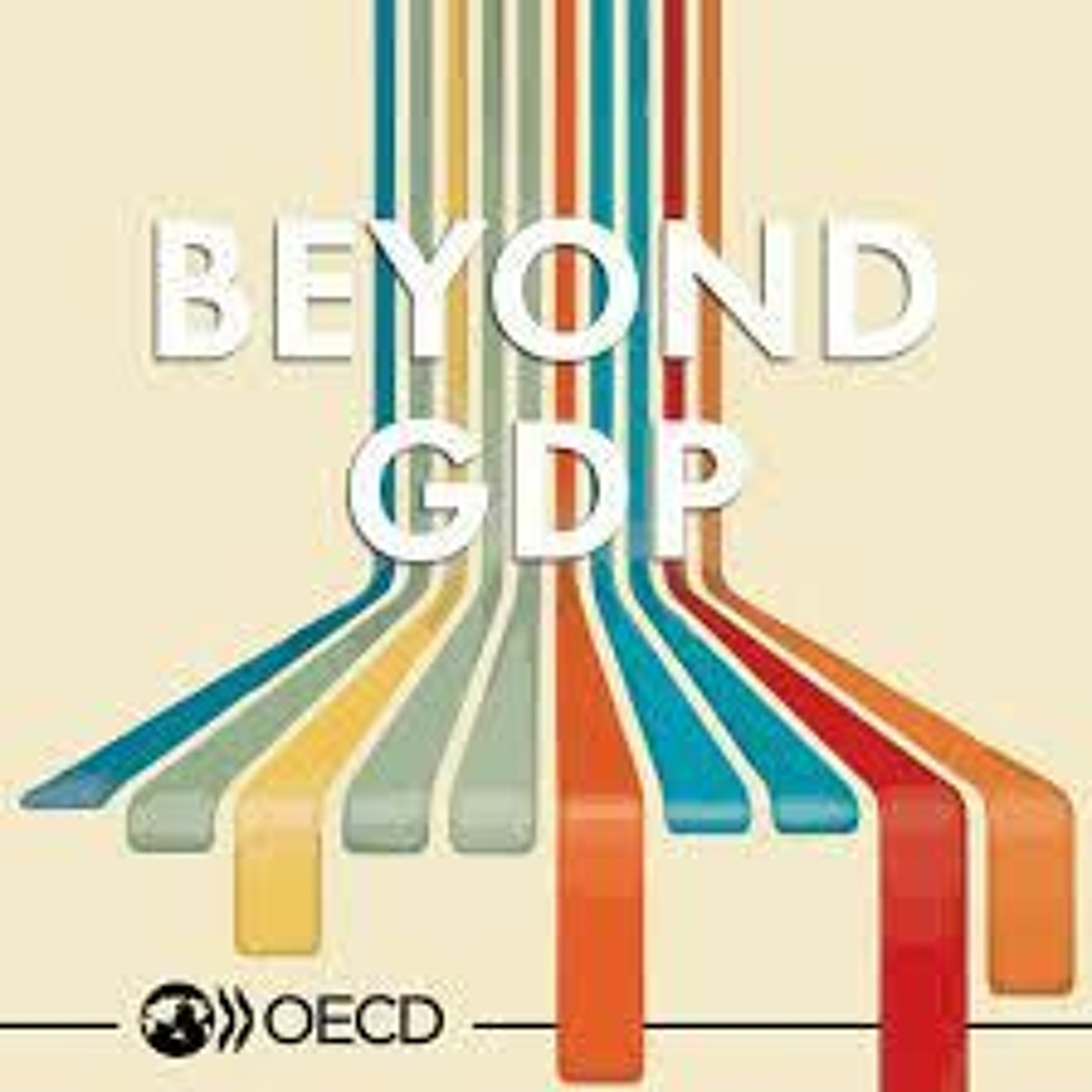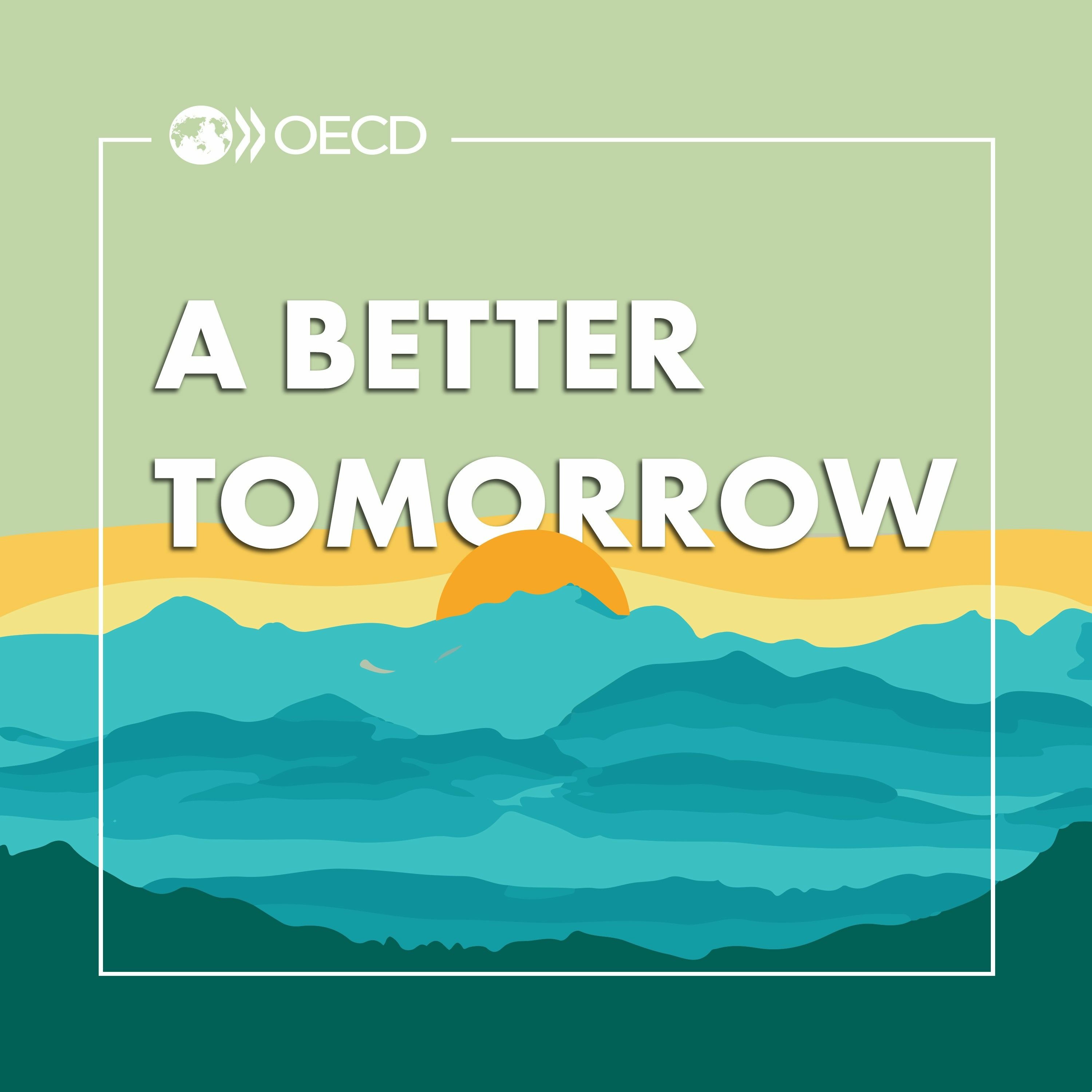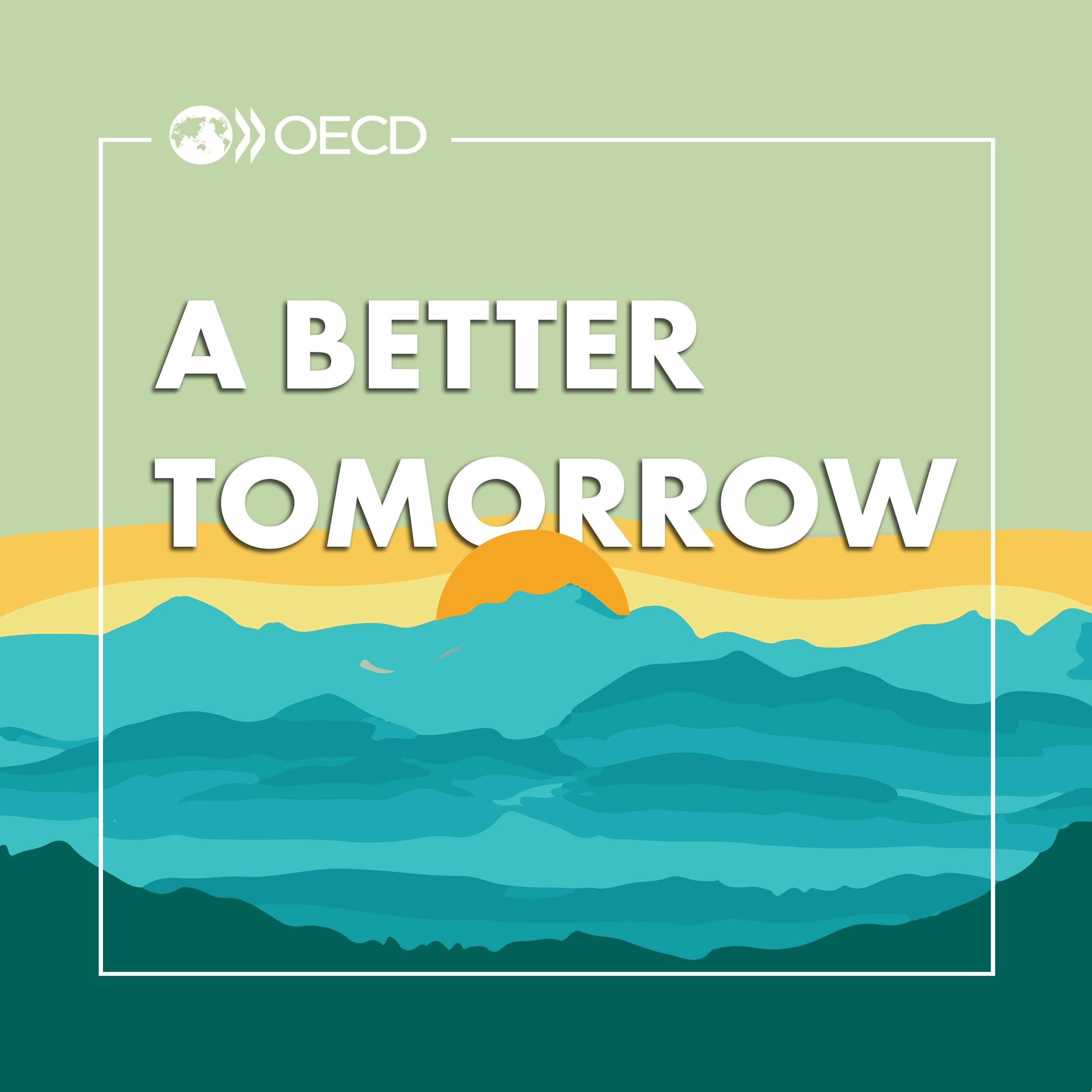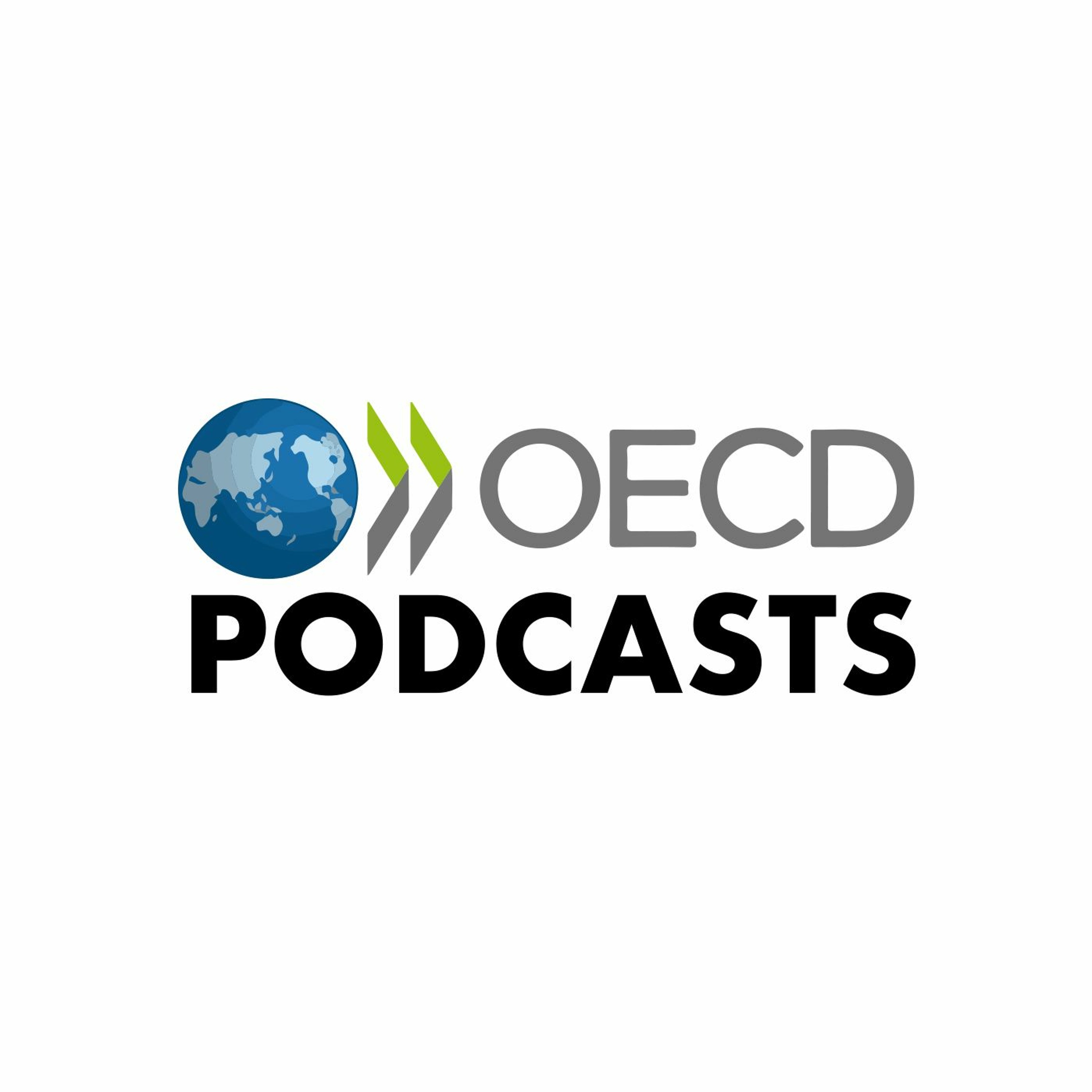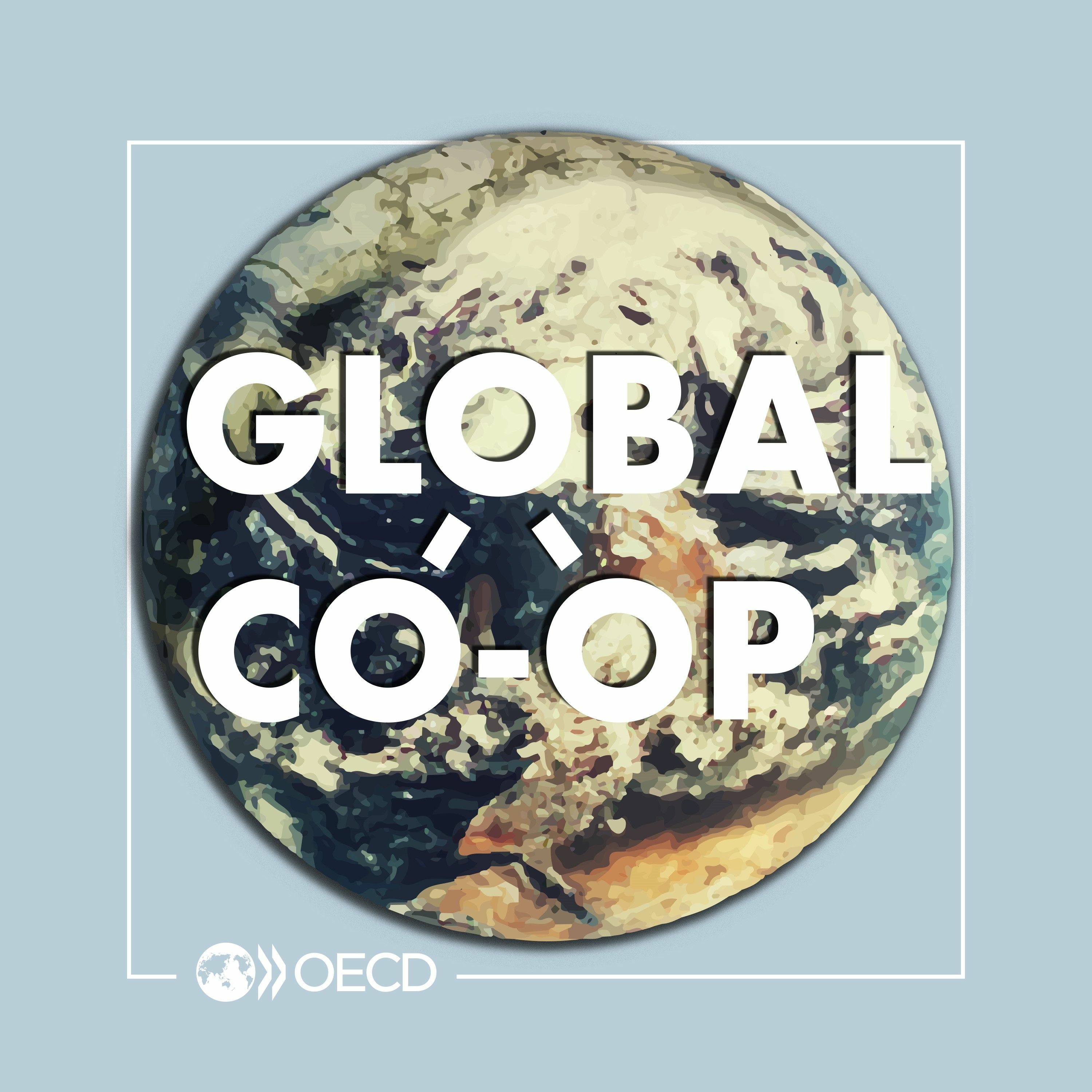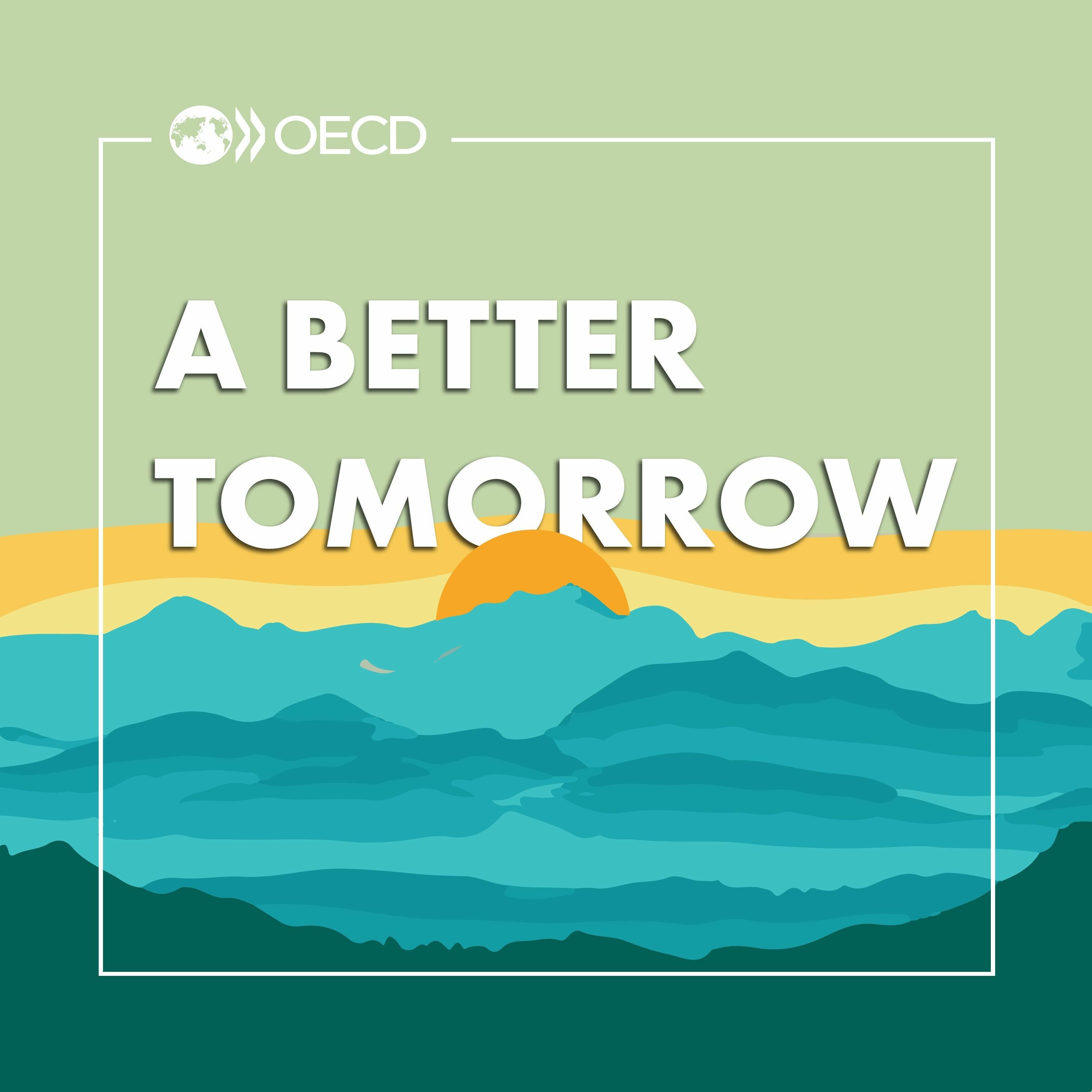Discover OECD
OECD

OECD
Author: OECD
Subscribed: 317Played: 3,762Subscribe
Share
© All rights reserved
Description
How can we all help shape better policies for better lives? OECD Podcasts bring you insightful interviews with experts and well-known personalities on such pressing challenges as inequality and inclusive growth, the economy, jobs, the digital transformation, climate change, the environment, education, healthcare, tax, trade, international co-operation, and more.
NOTE: The opinions expressed and arguments employed in the content displayed herein do not necessarily reflect the official views of the OECD, its Member countries, or any stakeholders who have contributed to or participated in any related work.
NOTE: The opinions expressed and arguments employed in the content displayed herein do not necessarily reflect the official views of the OECD, its Member countries, or any stakeholders who have contributed to or participated in any related work.
137 Episodes
Reverse
Young entrepreneurs have a huge role to play as slow productivity growth, climate change, demographic change and the digital transition come together in a perfect storm for many economies. The new OECD-EU “Missing Entrepreneurs” report finds that if youth (18-29 years old) participated in early-stage entrepreneurship at the same rate as “core age” men (30-49 years old), there would be an additional 3.6 million “missing youth entrepreneurs” in OECD countries. This accounts for about 11% of the total number of “missing entrepreneurs” in the OECD as young people face a range of barriers to success. David Halabisky from the OECD and Anita Tiessen, the CEO of Youth Business International, unwrap issues around money, mindset and motivation for young people in the world of business.
Guest: Anita Tiessen, CEO of Youth Business International
Host: David Halabisky
According to the UN Refugee Agency, more than 100 million people were forcibly displaced in 2022. With Russia's war of aggression against Ukraine, Europe has seen the biggest refugee crisis since the Second World War with more than 6 million people fleeing Ukraine. This is a big challenge for refugee protection and reception systems. Clearly something public services cannot stem on their own. This is where the social and solidarity economy steps in and steps up to both support governments and fill gaps and public support. This podcast discusses how the social and solidarity economy can fast track the labour-market integration of refugees and migrants.
Guests: Anne Kjaer-Bathel: Co-founder and CEO of ReDI School of Digital Integration, Berlin
Thomas Liebig, Principal Administrator, OECD Directorate for Employment, Labour and Social Affairs
Host: Christine Langenbucher
Digitalisation in procurement comes with a variety of opportunities, but also challenges. Can digital resources such as artificial intelligence, e-procurement and data systems improve the ways governments obtain services and goods? This podcast is the third and final episode of a series in collaboration with the MAPS Initiative, Methodology for Assessing Procurement Systems. Edwin Lau, OECD, Head of Division of Infrastructure and Public Procurement and Hunt La Cascia, Senior Public Sector Specialist at the World Bank, speak with us to help us understand the world of procurement digitalisation.
Guests: Edwin Lau, OECD, Head of Division of Infrastructure and Public Procurement and Hunt La Cascia, Senior Public Sector Specialist at the World Bank
Host: Robin Allison Davis
Producer: Samia Basille
As urban heat waves become more frequent and severe, meet the leaders on the frontlines of responding to extreme heat in cities. The Chief Heat Officers for Santiago, Chile, and Athens, Greece, discuss their innovative strategies to spread awareness of the dangers of heat, keep vulnerable residents safe in scorching temperatures, and create more green spaces to cool their cities down.
Guests: Cristina Huidobro, Chief Heat Officer for Santiago, Chile, and Elissavet Bargianni, Chief Heat Officer for Athens, Greece
Host: Jessica Voorhees
Learn more about OECD’s work on cities: https://www.oecd.org/cfe/cities/
Extreme heat is creating major challenges for cities. The urban “heat island” effect traps cities in a bubble of scorching temperatures, which endangers lives and puts pressure on emergency services and infrastructure. Often the poorest neighbourhoods bear the worst consequences of rising heat waves. Andrew Lombardi discusses how heat exacerbates inequalities in cities and breaks down what cities can do to save lives now and enhance heat resilience through better policies and practices.
Guest: Andrew Lombardi, OECD Policy Analyst
Host: Jessica Voorhees
Learn more about OECD’s work on cities: https://www.oecd.org/cfe/cities/
In 2015, the United Nations released the Sustainable Development Goals to help create a more sustainable and equitable world. The 17 goals included procurement systems, calling governments to procure in a more sustainable manner. But how does this actually work? How can governments include sustainability in their procurement systems? And can sustainable public procurement help mitigate the climate crisis? Steven Schooner, Professor of Government Procurement Law at George Washington University, helps us to answer these questions and more on this podcast. This is the second episode in the series with MAPS.
Guest: Steven Schooner, Professor of Government Procurement Law at George Washington University
Host: Robin Allison Davis
Producer: Samia Basille
To learn more about the MAPS Initiative, go to MAPSinitiative.org.
Over the past few decades, as trade and investment barriers have lessened, and transport and communication costs have declined, multinational enterprises or MNEs have become an increasingly important fixture in the global economy. As these entities begin to represent a larger share of global economic activity, the importance of monitoring them and understanding their behaviour has never been greater. However, MNEs cross borders by definition, making them notably difficult to keep track of at the national level. The new OECD UNSD Multinational Enterprise Information Platform gathers together data on the world's largest multinationals from a range of public sources. These data cover the geographical and digital scope of individual multinationals and an array of indicators, complementing major recent reforms to the international tax system led by the OECD and in response to the challenges arising from digitalisation. But what new benefits does this initiative deliver? What does the data reveal? And how can it be used for economic analysis? And what does this say about where the global economy is heading?
This OECD Podcast aims to address these questions and more in conversation with one of our own data experts.
Host: Ashley Ward
Guest: Graham Pilgrim, Head of Real-Time Data Analytics, OECD Statistics and Data Directorate
Producer: Anna Wahlgren, Ashley Ward, Robin Allison Davis
To learn more about the OECD's work with multinational enterprises, go to: https://www.oecd.org/sdd/its/mne-platform.htm
When governments need to buy anything from office supplies to infrastructure, the process is more complex than your ordinary shopping trip. How do we know that governments are using good judgement when purchasing items or awarding contracts? Who advises governments on these processes to ensure that they are transparent, efficient, and cost effective? That's where MAPS, the methodology for assessing procurement systems, steps in. Diana Viljoen, from Global Affairs Canada and member of the MAPS Technical Advisory Group will answer these questions and more on this podcast. This is the first episode in the series with the MAPS Network.
Guest: Diana Viljoen, Global Affairs Canada; MAPS Technical Advisory Group
Host: Robin Allison Davis
To learn more about the MAPS Initiative, go to MAPSinitiative.org.
Retaining talent of all ages has become one of the most important issues facing employers today. How are people 55 to 64 faring in today’s labour market and how can we build an effective, multi-generational workforce? The OECD’s Shruti Singh and AARP’s Lona Choi-Allum explore what needs to be done to ensure that everyone's talents and skills are put to best use.
Guests: Lona Choi-Allum, Senior Research Advisor, AARP
Shruti Singh, Senior Economist, OECD
Host: Kate Lancaster
Producer: Robin Allison Davis
To learn more about the AARP's work on the aging workplace, go to:
www.aarpinternational.org/globalemployersurvey
www.aarpinternational.org/globalemployeesurvey
www.aarpinternational.org/llel
To read the OECD report, Retaining Talent at All Ages, go to:
https://doi.org/10.1787/00dbdd06-en
Bertrand Piccard est un « savanturier » psychiatre et explorateur. Il a fait le premier tour du monde en ballon en 1999, puis en avion solaire avec l'avion Solar Impulse en 2015-2016. En tant que Président de la Fondation Solar Impulse, il est aussi un « explorateur de solutions » face au plus grand défi de notre temps : le changement climatique. Après avoir survolé la terre, il travaille à sa sauvegarde et démontre que celle-ci est non seulement possible, mais aussi rentable. Il évoque ici des pistes innovantes et concrètes pour avancer : 1 500 solutions efficientes qui sont à la fois écologiques et rentables. Et face à un cadre juridique et réglementaire anachronique qui ne permet pasr toujours de mettre en place ces solutions, il propose 50 recommandations de loi clés en main pour le moderniser.
Fidèle à l’esprit de pionnier de ses illustres ancêtres, Bertrand Piccard bouscule nos paradigmes et nos certitudes, ces dogmes qui nous font croire que beaucoup de choses sont impossibles. La protection de l'environnement est une aventure enthousiasmante, qui nécessite d'explorer de nouvelles manières de faire et de penser. Nous pouvons devenir les pionniers d’une saine modernité, dès maintenant... C’est ce que Bertrand Piccard démontre ici, avec la rigueur et l’ardeur d’un découvreur.
Invité : Bertrand Piccard, Président de la Fondation Solar Impulse
Animation : Anne-Lise Prigent
Production : Robin Davis
Pour en savoir plus
Fondation Solar Impulse
Lutter ensemble contre la crise climatique
Forum inclusif sur les approches d'atténuation des émissions de carbone
Page de l’OCDE sur l’environnement
Pour s’abonner à la lettre d’information de l’OCDE : oe.cd/3JD
Suivez-nous sur les réseaux sociaux : www.oecd.org/social-media
© Podcasts de l’OCDE 2023
Is the current state of the modern man something to be concerned about? Does childhood well-being vary greatly between boys and girls? This podcast explores those questions and more with Richard Reeves, author of "Of Men and Boys Why the Modern Male is Struggling, Why It Matters and What to Do About It" and Olivier Thevenon, OECD economist and the Observatory on Well-Being, Inclusion, Sustainability and Equal Opportunity.
Guests: Richard Reeves, Author of "Of Men and Boys Why the Modern Male is Struggling, Why It Matters and What to Do About It"; Olivier Thevenon, OECD Economist WISE
Host: Robin Allison Davis
Producer: Robin Allison Davis
L'Enfance est une période critique au cours de laquelle les individus développent un grand nombre de compétences nécessaires pour s'épanouir plus tard dans la vie. La promotion du bien-être des enfants n'est pas seulement une fin importante en soi, mais elle est également essentielle afin de préserver la prospérité et la soutenabilité de l'économie pour les générations futures. Cependant, le bien-être des enfants est très récent dans l'agenda politique.
Olivier Thevenon, qui dirige l'Unité du bien-être des enfants au centre de l'OCDE pour le bien être, l'inclusion, la durabilité et l'égalité des chances, explique où nous en sommes aujourd’hui en matière de bien-être des enfants dans les pays de l’OCDE et examine les différences entre le bien-être des filles et des garçons. De plus, Olivier Thevenon évoque les enjeux liés à la pandémie de COVID-19, qui a plongé de nombreuses familles dans la pauvreté. Il se penche également sur l’action des pouvoirs publics et les plans d'actions dans les pays de l’OCDE pour améliorer le bien-être des enfants.
Invité : Olivier Thevenon
Animation : Kim Chardon
Production : Robin Allison Davis
The social economy can help boost prospects for women… and men. One of the big problems in tackling gender equality is breaking down gender stereotypes that drive women into what have often been called “pink collar jobs”. These are jobs like childcare, education, personal and household services, plus social work. Nitya Nangalia from SEWA Bharat and Natalie Laechelt from the OECD unpack the role of the social economy in the quest to move beyond pink collar jobs.
Guests: Nitya Nangalia, SEWA Bharat; Natalie Laechelt, OECD Economist
Host: Shayne Maclachlan
As technology continues to advance, we're more connected than ever. But with more benefits also come more risks. How can we ensure that we are protected from digital threats? In December 2022, the OECD released its Digital Security Recommendations to help keep individuals, businesses and governments secure online. Audrey Plonk, head of Digital Economy Policy division for the OECD's Science, Technology and Innovation Directorate, explains the Digital Security Recommendations and what they hope to achieve.
To learn more about the OECD’s work on digital security, go to: www.oecd.org/digital/digital-security.
Guest: Audrey Plonk, head of Digital Economy Policy division for OECD Science, Technology and Innovation Directorate
Host: Robin Allison Davis
Producer: Samia Basille
In 2022, OECD Podcasts did not shy away from the hard issues plaguing society today. Misinformation, domestic violence and burnout are only a few of the topics discussed this year with a variety of experts. Let's take a listen to some of the best podcast interviews done this year that you may have missed.
Host: Robin Allison Davis
Producer: Samia Basille
Guests: Margaret Johnston Clarke, Ingrid Barnsley, Chiara Varazzani, Pascale Guy, Julio Bacio Torres, Sergio Gueirrero
The last two years have seen unprecedented disruptions in global supply chains, brought about by a perfect storm of causes, with wide geopolitical implications that look to continue well into the future. How prepared were the public and private sectors? And what have we learned? We speak with Marion Jansen on how to make supply chains more resilient.
Host: Christopher Mooney
Guest: Marion Jansen, OECD Director of Trade and Agriculture
Producer: Robin Allison Davis, Samia Basille
To learn more about the OECD's work on trade, go to:
https://www.oecd.org/trade/resilient-supply-chains/
https://www.oecd.org/trade/topics/trade-in-raw-materials/
For almost three years now, the tourism sector has been going through a really tough time. It was smashed by the COVID-19 pandemic and travel restrictions. After hitting 1.5 billion international tourist arrivals in 2019, international tourist arrivals worldwide plummeted by over 70%. It rebounded strongly in 2022 driven by pent up demand, household savings and the easing of travel restrictions – the so-called “revenge spend”. But now the sector faces an uncertain outlook – as the global economic slowdown and the fallout from Russia’s war in Ukraine brings new challenges. Tourism businesses are being hit by rising costs, and tight labour markets. The cost of living crisis is also putting pressure on household incomes and consumer spending. How can governments and businesses boost recovery in the short term and create a stronger, more sustainable tourism economy?
Hosts: Shayne MacLachlan, Jane Stacey
Guest: Sergio Gueirrero , Senior Director at Turismo de Portugal, Chair of the OECD Tourism Committee
Young people are increasingly prioritising careers with positive social and environmental impacts. Globally, two-in-five young people see social impact as one of the deciding factors for their career choices.
At the same time, almost 50% of young people in OECD countries would prefer to be self- employed rather than work as employees.
Young people are seizing opportunities and leading social enterprises across the world but what are the challenges and best paths to follow? How do we give young people a seat at the table? What can policy makers do to help? Polly Akhurst from Amala gives us her insights.
Host: Natalie Laechelt
Guest: Polly Akhurst, the co-founder and executive director of Amala
Inequalities not only affect our lives, but also the lives of our children in generations after us. How can we ensure that our children have more opportunities than we have, that generations after us are rising in society and not limited by sticky floors? Romina Boarini, director of the OECD Centre on Well-Being, Inclusion, Sustainability and Equal Opportunity, helps us understand social mobility, what it is, how it works, what government and societies can do to help and what the OECD is doing.
To learn more about the OECD's work on social mobility and to view the Observatory on Social Mobility and Equal Opportunity, go to oe.cd/social-mobility.
Guest: Romina Boarini, Director, OECD Centre on Well-Being, Inclusion, Sustainability and Equal Opportunity
Host: Robin Allison Davis
Misinformation and disinformation have become some of the biggest threats to democracy in the 21st century. It's everywhere from stories of election fraud to vaccines. How can we combat misinformation and disinformation while still protecting freedom of speech? What can governments do to curb myths and disinformation? This podcast is the second in a series on Reinforcing Democracy in partnership with the OECD's Public Governance Directorate. Julio Bacio Terracino, Head of Public Integrity at the OECD, helps us make sense of the issues and how we can tackle them.
To learn more about the OECD's work on democracy, go to https://www.oecd.org/governance/reinforcing-democracy/
Guest: Julio Bacio Terracino, OECD Head of Public Integrity (Twitter: @JBacioTerracino)
Host: Robin Allison Davis



